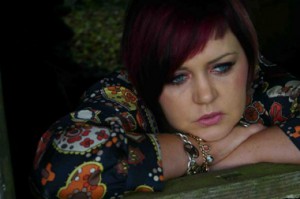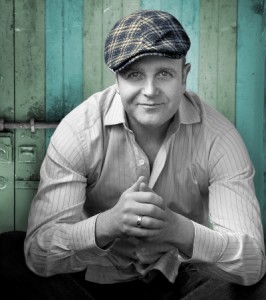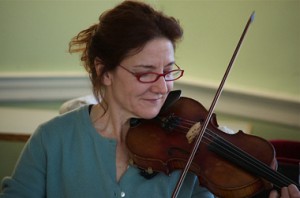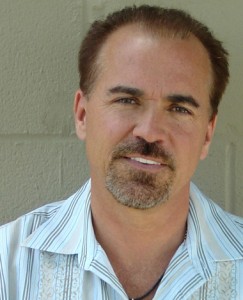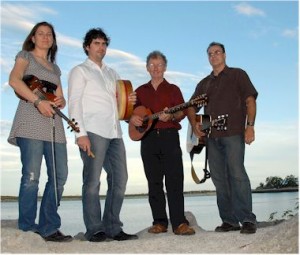If his mother hadn’t been visiting from Ireland and sitting right there right next to me, sipping tea at Starbucks in Chestnut Hill, I’m not sure I would have believed Enda Keegan’s Cinderella story.
“Oh it’s true,” Mavis Keegan assured me.
And it starts like this: Once upon a time, a young high school dropout who picked cabbage on a farm during the day and played music in bars at night was asked by his mother’s employers to come to their home and perform for their American guests. “My mother was a chef at Castleton House, a private house in Kilkenny, where I worked as a waiter sometimes from the time I was 12 or 13,” explains Keegan, a contemporary folksinger and songwriter who recently moved from New York to Philadelphia. Mavis nods.
He was 17 at the time. The guests, James Vankennen and his wife, Gloria Ozbourne, were in their 70s. Everyone was having a brilliant time when Vankennen suddenly asked the young man if he’d like to go to college in the States. “I said ‘sure, send me a ticket,’” recalls Keegan with a grin. He’d thought it was just an offhand comment, made in the cheer of the moment.
But the next morning, Vankennen reiterated the offer. Keegan would be the second total stranger that the Vankennens would send to college. But there was a hitch. Keegan hadn’t finished high school—to the consternation of his parents—so he assumed no college would have him. A few months passed, then 10 days after Christmas, Keegan got a letter from the Shenandoah Conservatory of Music in Virginia. He was to report to classes the following Monday.
“So I was literally working on a farm picking cabbages on a Thursday and going to college on Monday,” says Keegan. “It changed my life overnight.” Today, Keegan, who performs regularly in New York, is working on a second CD to follow his first, The Bridge, a polished mix of contemporary folk-rock tunes he composed and traditional tunes including “The Water is Wide” and “Mary and the Soldier.” He moved to Philadelphia in November so his wife, Anitra, didn’t have to commute so far to her job—she’s a dancer with BalletX which performs at the Wilma Theater in Center City.
Keegan’s life had started to change when he was 10. His father, Peter, a fine baritone singer, bought him a guitar and the young Enda, the youngest of six children, taught himself to play. By the time he reached his teens, he was playing regularly in pubs and performing with the Carrick on Suir Operatic Society. But school. . .well, that was another matter.
His mother takes over the telling of that story. “I blame the Christian Brothers,” she tells me. And no, it’s not what you think. “They wouldn’t put him in the music class,” she says. “I think he would have studied everything else if he had been allowed to take music. They had a talent show for the students and guess who won it?” She nods toward her son, who appears a little alarmed at what she might say next. “He won 20 pounds, but I went back to the brother and told him to keep it. Why would they give him money for his music when they wouldn’t allow him in the class?”
“You did that?” asks Enda, clearly surprised.
“I did,” she says with a nod.
It all worked out in the end, with the help of Keegan’s fairy godparents. Of course, there were some detours. His first job out of college, where he earned a bachelor of fine arts and studied musical theater, was as a Christmas elf at Macy’s in New York City. He followed that with a stint as a “spray boy”—cologne terrorist, if you will—for Ralph Lauren. Then he worked for BMG Records in the department “on those annoying ads, ‘buy one CD, get 700 free’,” he says. (The young woman trying to work at the next table at Starbucks is shaking her head. “I’m never going to get anything done because you’re making me laugh,” she tells him.)
Eventually, he became lead singer of a group called SurreyLane, which toured the US, had a top 100 hit on the adult contemporary charts and got airplay for a 9/11 tribute song, “Love Must Grow.” In 2005, Keegan left the group to go solo. “If you’re going to be a performer, and it’s not always easy, you gotta love it, and I wasn’t loving it,” he explains.
He’s still commuting to New York to perform several nights a week at three different venues. A couple of years ago, he was hired by “American Idol” to play during the coast-to-coast audition tour during which they winnow out the thousands of hopefuls not talented or terrible enough to make the cut. Last year, he opened for Finbar Furey at O’Hurley’s in New York and produced a benefit for the NYPD Widows and Children fund featuring the Bagatelles, the Irish band headed by Liam Reilly that influenced Keegan and that other Irish singer, Bono, and whose tunes, like “Summer in Dublin” and “Second Violin,” fill the play lists of most Irish groups even 30 years after they debuted.
Keegan would like to become that established in his new city too. “I love the challenge of taking it on,” he says.
He’s gotten some help from John Byrne, a Dublin native and former helmsman of the popular local Celtic-folk group, Patrick’s Head, with whom he performed at Fergie’s Pub in the city. He’ll be fronting when Byrne, now lead singer for the John Byrne Group, holds his CD release party at World Café Live next month. “John’s an extremely talented musician and he’s been very good to me,” says Keegan. In fact, he owes next Wednesday’s gig at Slainte at 30th and Market to Byrne, who anchors the session there.
Keegan’s also working on his second CD with LA music producer Peter Stengaard, who has produced and worked with artists as varied as Ashanti, Billy Ray Cyrus, Peabo Bryson, and Joss Stone as well as songwriters Diane Warren and Carol Bayer Sager. About Keegan, Stengaard says, “Enda is a rare talent, one of those unpolished diamonds you quickly realize you need not polish because it’s already shining.”
You can hear how he shines at his website. And you can see him in person on Wednesday, starting at 9 PM, at Slainte, at 30th and Market, across the street from 30th Street Station.

